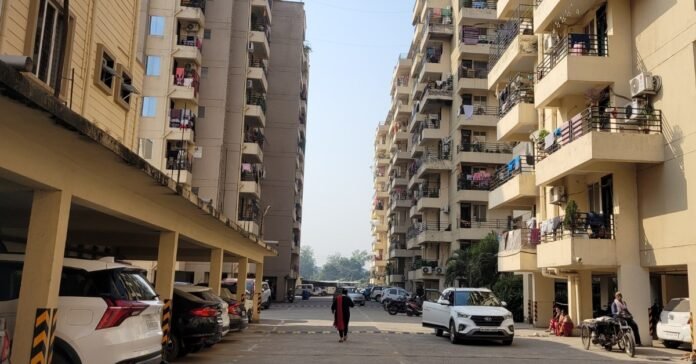
In many housing societies across India, domestic workers face discrimination—being restricted from using main lifts, denied access to common spaces, or even penalized for simple daily activities. However, some residential communities are breaking this pattern and setting an inspiring example by prioritizing equality and dignity for all.
Here are six housing societies that have adopted policies ensuring fair treatment and respect for domestic workers.
1. Serene Greens, Bengaluru
In this gated community, domestic workers, drivers, and security personnel are treated as an integral part of society. They are free to use any lift without restrictions, and the society has designated rest areas for their comfort. Additionally, residents have set up a community fund to support the education of workers’ children.
“I’ve worked in societies where we weren’t even allowed to sit anywhere,” says Ravi Gupta, a security guard. “Here, we have a shaded space to rest. It makes a big difference.”
2. Spanish Garden, Guwahati
One of Guwahati’s most prominent residential complexes, Spanish Garden, follows an inclusive approach where domestic workers are treated with dignity. There are no restrictions on lift usage, and many residents ensure fair wages and safe working conditions. Workers are also invited to annual community gatherings to foster mutual respect.
“Every Holi, residents give us sweets, and once a year, they organize a picnic for us,” says Kriti Kumari, a maintenance guard. “I’ve worked here for 10 years, and it truly feels like home.”
3. Bhakti Palace, Mumbai
Located in Dahisar West, Bhakti Palace has taken steps to eliminate social hierarchies by ensuring workers can use all community spaces freely. They are allowed to take breaks in common areas, such as parks and benches, promoting a sense of belonging and dignity.
4. Godrej Apartments, Mumbai
Unlike many societies that monitor and restrict domestic workers’ movements, this Chembur-based society issues ID cards to all workers, allowing free movement. The residents’ association also ensures that workers are not dismissed unfairly without notice.
“In other societies, I have to call the owner just to enter, and we are checked whenever we leave. It’s humiliating,” says Priya, a gardener. “Here, I can come and go freely. If I take the wrong lift by mistake, no one yells at me—they just smile.”
5. Ekta Towers, Delhi
Located in Dwarka, Ekta Towers has established a workers’ welfare committee that oversees fair treatment for all staff. The society provides clean restrooms for domestic workers, ensures they receive Diwali bonuses, and even facilitates emergency medical support when needed.
“The residents help with medical expenses when needed, and I’ve never felt discriminated against,” says Meena Kumari, a house help. “I even bring my kids along when they don’t have school, and they’re allowed to play in the society’s playground.”
A Step Towards Change
These societies prove that inclusion and respect are not difficult to implement. As debates around class discrimination in urban spaces continue, these examples remind us that real change begins at home—with policies that prioritize dignity over outdated social hierarchies.

